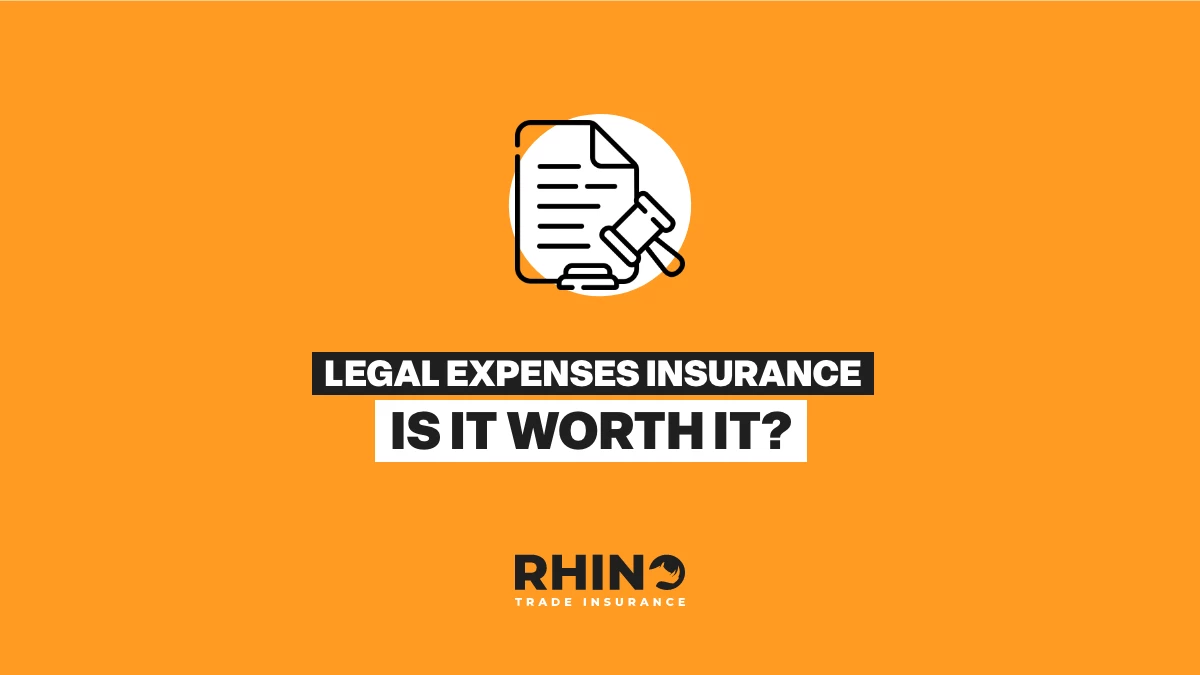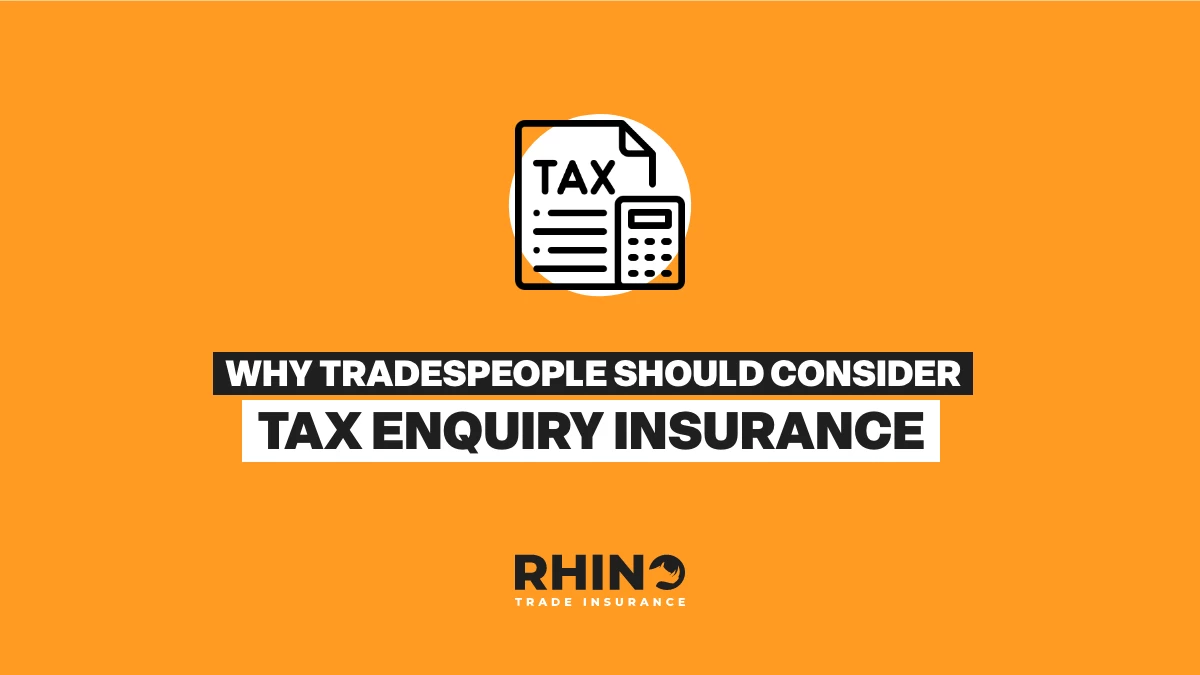
Legal Expenses Insurance – Is it Worth It?
Legal Expenses Insurance for tradespeople explained—what it covers, when you might need it, and how it protects against costly legal fees.
As a skilled tradesperson, the role of a business owner comes with the responsibility of managing your finances, including filing your tax returns. The good news is that, like any business, tradespeople can benefit from a range of tax deductions, helping to maximise their returns and ease the financial burden.
In this comprehensive guide, we'll explore the various expenses that UK tradespeople can claim on their tax returns, providing insights and tips to ensure you make the most of every deduction available.
Before diving into specific deductions, it's essential to understand the concept of tax deductions. In the UK, a tax deduction is where you subtract an expense from your total income, ultimately lowering the amount of income that can be taxed. For tradespeople, this means that legitimate business-related expenses can be deducted from your taxable income, lowering your overall tax liability.
It's crucial to note that not all expenditures qualify for tax deductions. To be eligible, an expense must meet certain criteria:
Necessity: The expense must be necessary for the operation of your trade business.
Exclusivity: The expense should be exclusively for business purposes and not for personal use.
Documentation: Proper documentation, such as receipts and invoices, must be maintained to substantiate the expenses.
With these criteria in mind, let's explore the various expenses that tradespeople can claim on their tax returns.
Investing in high-quality tools and equipment is an inherent part of being a tradesperson. Fortunately, the cost of tools and equipment is tax-deductible. This includes the purchase, repair, and maintenance of tools, as well as the cost of any consumables essential to your trade.
Make sure that you keep detailed records, including receipts and invoices, as HMRC may request documentation to verify these expenses.
Whether you operate from a dedicated workshop or use a portion of your home as an office, you can claim expenses related to your workspace. This includes any rent, utilities, and other associated costs.
If you work from home, you can also claim a proportion of your household bills, such as heating, electricity, and council tax, based on the percentage of your home used for business purposes.
If you use a vehicle for work-related purposes - which most tradespeople do, you can claim a portion of your vehicle expenses as tax deductions. This includes fuel, insurance, maintenance, and even the cost of the vehicle itself, depending on its usage for business purposes. Be sure to keep a detailed mileage log to differentiate between personal and business-related travel.
Continuous learning is vital in any trade, and the good news is that the costs associated with training and professional development are tax-deductible. This includes the fees for workshops, courses, and any materials required for your ongoing education in your field.
As a tradesperson, the right protective clothing is not just a necessity for safety but is also tax-deductible. This includes items such as safety boots, hard hats, gloves, and any uniforms specific to your trade. Keep in mind that clothing claiming to be solely for fashion or personal use won't qualify for this deduction, sadly!
Protecting your trade business with insurance is a smart move, and it is a great investment for the protection of your finances and the health and well-being of those around you. The good news is that insurance premiums are generally tax-deductible. This includes liability insurance, business insurance, and any other policies relevant to your trade.
For more information on how Rhino Trade Insurance can help with your trade insurance, we have dedicated policies that can be tailored to your trade. Get a quick and easy quote today by calling 0116 243 7904 or have a look at our website for more info.
It's 2024, and content continues to be king! Social media marketing and old-school advertising are crucial for the success of any business. Fortunately, the costs associated with advertising your trade business are tax-deductible. This includes expenses for online advertising, business cards, flyers, and any other promotional materials. So make good use of this benefit to your business now!
If you belong to a professional trade association or pay fees for memberships, these expenses are tax-deductible. Additionally, any fees paid to professionals, such as accountants or consultants hired to help with your business, can also be claimed as deductions.
If your trade work requires you to travel, you can claim expenses related to transportation and accommodation. This includes costs for train or bus tickets, hotel stays, meals, and even incidental expenses. Keep thorough records, including receipts and a log of your business-related activities during the trip, just in case the taxman comes sniffing around for proof.
If you hire subcontractors to assist with specific projects, the payments made to them are tax-deductible. Make sure you keep records of all subcontractor agreements and payments to substantiate these expenses.
Tips for Maximising Your Deductions:
Keep Impeccable Records: Detailed and organised records are your best friend during tax season. Maintain a system for storing receipts, invoices, and any other relevant documentation.
In conclusion, understanding and leveraging tax deductions is a critical aspect of managing the financial aspects of your trade business. By maximising your allowable expenses, you can lower your taxable income, ultimately leading to a lower tax liability and more money in your pocket - cher-ching!
Take the time to document your expenses diligently, stay informed about tax regulations, and consider seeking professional help to ensure you make the most of the available deductions. Remember, every pound you save on taxes is a pound that can be reinvested in your business or used to enhance your personal financial well-being. For more information on how you can save on your trade insurance, call Rhino on 0116 243 7904 or look at our website for all the info you need here.
Legal Expenses Insurance for tradespeople explained—what it covers, when you might need it, and how it protects against costly legal fees.
Worried about a tax investigation? With HMRC cracking down in 2025, Tax Enquiry Insurance from Rhino gives UK tradespeople expert protection and peace of mind.
Rhino Trade Insurance CEO Troy Stevens joins industry leaders at the House of Commons to discuss the rising issue of tool theft—highlighting its impact on UK tradespeople and the importance of awareness and protection.
Tell us your trade and get a tailored insurance quote for your business in seconds
Our team of experts are available to talk to Mon-Fri 08.30-17.30 and Sat 10.00-14.00

